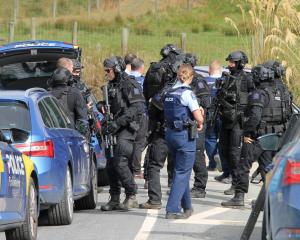

Victorious yachties return
Large crowds gave Iona’s skipper and crew a most enthusiastic welcome on arrival at Dunedin at 9.43 last night by the second express. The spontaneous cheering and the rush of citizens of both sexes who clamoured to shake Mr G.A. Wiseman, Iona’s skipper, by the hand clearly demonstrated the great interest taken in the Sanders Cup contest sailed at Auckland a few days ago.
When the express pulled into the station the platform was crowded from end to end, and when Mr Wiseman was seen standing on the rear platform of the foremost carriage, loud and prolonged cheering broke out. When he stepped on to the platform, he was immediately seized by several of his intimate male friends and carried shoulder high through the dense cheering crowds to the waiting motor cars outside the station. The Dunedin Pipe Band then struck a refrain and, after the official party had taken their seats in the cars, the procession moved slowly along to the Art Gallery Hall amidst the cheering throng.
It was indeed a most fitting welcome home to a band of experienced boating men who had journeyed over 1600 miles with the champion boat to bring the coveted Sanders Cup back to Otago. The Mayor (Mr H.L. Tapley) presided and said that he felt sure the people of Dunedin had shown their appreciation by the splendid reception. "For They Are Jolly Good Fellows" was sung with enthusiasm. Hearty applause followed and the proceedings closed with the singing of the National Anthem.
Get enrolled to vote
It appears to be timely to remind the public that within four weeks the period will expire within which all eligible persons are under legal obligation to register as electors of the districts in which they reside. In this part of the dominion the process of enrolment is not proceeding at a pace which suggests alacrity on the part of everybody concerned to discharge this obligation, and doubtless there is a similar dilatoriness in other parts of the country. On every person who is entitled to voting rights rests the onus of registration by March 6.
— editorial
Free, secular and compulsory
The Religious Exercises in School Bill was the product of co-operation between the Anglican Bishops and the leaders of other denominations; it would have been highly surprising if the General Synod had failed to find reason to commend it. But the discussion on the subject was hardly calculated to allay the suspicions which those most zealous for the maintenance of this country’s free, compulsory and secular education entertained regarding the Bill. Even if it be granted that the Bill was framed carefully to prevent the introduction of sectarianism, there is no escaping the conclusion that the effect of its proposals would be the introduction of a measure of religious instruction in the schools. There is much reason to believe that the Bill would constitute the thin end of the wedge whereby, in course of time, the destruction of our present system of education would be brought about. During the discussion in the Synod one speaker expressed the opinion that this Bill would sweep away "the stain of secularism." At every turn the uncompromising point of view revealed in such an expression is liable to crop up.
— editorial
— ODT, 7.2.1925 (Compiled by Peter Dowden)












